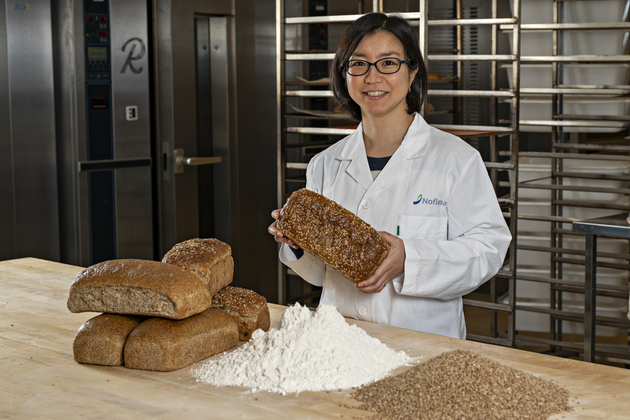Gene2Bread
Building knowledge and exploiting technology to achieve high wheat self-sufficiency in Norway

The project aims to increase Norway’s self-sufficiency in milling wheat by gaining knowledge to improve wheat quality and increase its utilisation. Adequate protein content and a stable quality between seasons and within a season are prerequisites to increasing the share of Norwegian wheat in the flour blend.
Start
01. Apr 2024
End
31. Mar 2028
Funded by
FFL/JA
Cooperation
NMBU, NIBIO, Lantmännen Cerealia, Bakehuset, Orkla Foods Norge, Felleskjøpet Agri, Norgesmøllene, Graminor, Strand Unikorn, Yara.
Project Manager(s):
Other Participants:
Background
To achieve high food security and emergency preparedness, it is crucial to increase self-sufficiency in milling wheat in Norway.
The pandemic and the war in Ukraine have been reminders that food security is even more crucial now. Besides, from an ethical point of view, we should import less and use as much Norwegian wheat as possible. Moreover, the government plans to stockpile emergency wheat mostly based on domestic wheat. Hence, there is an urgent need to increase the production of milling wheat that meets the food quality standard as well as market demand.
Goal
In this project our goal is to gain knowledge to increase Norway’s self-sufficiency in milling wheat by ensuring stable and adequate quality and improving its utilisation.
What we do
In the Gene2Bread project, Nofima will characterize the chemical composition of flour constituents and the breadmaking quality of Norwegian wheat cultivars grown under different environmental conditions.
Nofima carries out yearly analyses of the new harvest early in the season to predict the breadmaking quality. Analysis of the new harvest will assist industries in planning for the maximum use of Norwegian wheat.
Together with NMBU and NIBIO, we will also identify differences between cultivars in response to fungal infections that could weaken gluten quality. Nofima will be responsible for analyzing the gluten quality of wheat samples infected by fungi.
Furthermore, Nofima will investigate the possibility and methods of adjusting breadmaking processes according to seasonal variations in quality. This work will be done in close collaboration with industry partners. More flexible processes at the industrial level will allow for increased utilization of Norwegian wheat.
The project’s outcome will allow farmers to produce wheat with a small environmental footprint by growing cultivars with high-protein genes and using cutting-edge technologies.
NMBU is responsible for identifying high-protein genes to be used in breeding programs. The mechanisms of the candidate gene will be investigated with transcriptome and proteome analyses by NMBU and Nofima, respectively. NIBIO will explore nitrogen fertilization strategies adapted to each cultivar using precise nitrogen fertilization.
Publications
Topics
Food security
Research facilities